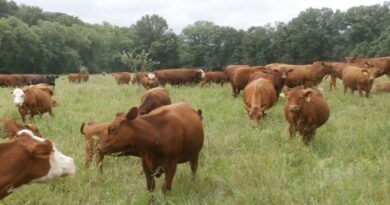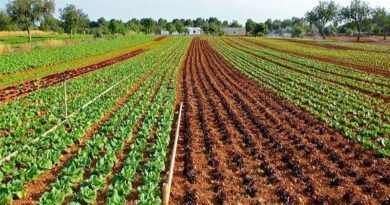CGA appeals for political intervention before orange export season starts in earnest
THE Citrus Growers’ Association of South Africa (CGA) is pushing for high-level political intervention to unblock exports to the EU before the export season starts in earnest towards the end of July. The CGA had appealed to the Minister of Agriculture, Land Reform and Rural Development, Thoko Didiza, to make pest regulations by the European Union a priority at the 5th African Union (AU) – European Union (EU) Agriculture Ministerial Conference scheduled to take place last Friday. The regulations were discussed, but the situation has not changed.
The CGA is now focussing its efforts on getting a World Trade Organisation panel to adjudicate on the matter.
The EU’s regulations on False Coddling Moth (FCM) and Citrus Black Spot (CBS) are posing a threat to the future of the local citrus industry. AU and EU Ministers of Agriculture attended the Conference along with representatives of various international organisations, which made it a crucial opportunity for the South African government to push for a resolution on these critical matters in order to safeguard the 140 000 jobs the sector sustains.
The local orange export season starts in all earnestness towards the end of July and the impact of the new FCM regulations is expected to be devastating. Their introduction in the middle of the 2022 export season already resulted in R200 million in losses for growers with this number expected to spiral out of control during the current season. Current estimates are that around 20% of oranges produced for Europe will not be shipped this year because of the new regulations. This means that approximately 80 000 tons of oranges might not make it to European supermarket shelves, resulting in a further R500 million economic blow to the industry.
The CGA remains of the view that the new regulations have no basis in science and prescribe cold treatment that simply isn’t warranted. “Our industry has presented clear evidence that our stringent FCM risk management system is highly effective in ensuring that 99.9% of oranges entering the EU are pest free (with only 2 FCM interceptions detected in the over 400 000 tons of oranges shipped to the region in 2022),” said CEO of the Citrus Growers Association, Justin Chadwick.
Despite this evidence, months of consultations between the South African government and EU counterparts at a WTO level have achieved no progress in the matter.
“CBS is mostly a cosmetic issue that only affects a tiny percentage of fruit exported, largely as a result of South Africa’s world-class control measures. Even though there is scientific evidence that citrus fruit without leaves is not a pathway for the spread of CBS, the EU has continued to enforce draconian and unreasonable measures on citrus being exported from countries where the pest is found,” said Chadwick.
“While it is evident that these restrictions are nothing more than a protectionist impulse by the EU, local citrus growers nevertheless had to implement a comprehensive CBS risk management programme over the past few years.
“Taken together, the CBS and FCM protocols and proactive measures are costing the local citrus industry R3.7 billion annually, placing further cost pressures on an industry that is already coping with continued loadshedding, a dysfunctional rail network, decaying roads, and congested ports,” said Chadwick.
He said that the CGA remains committed to working with all government and industry stakeholders to address this issue with the urgency it requires to safeguard the profitability and sustainability of our local industry.




